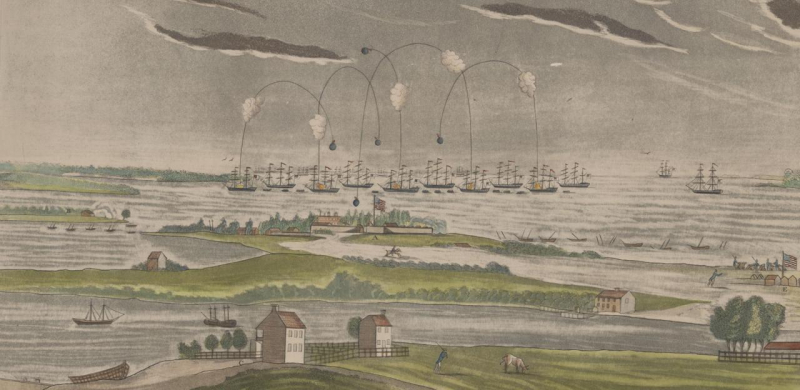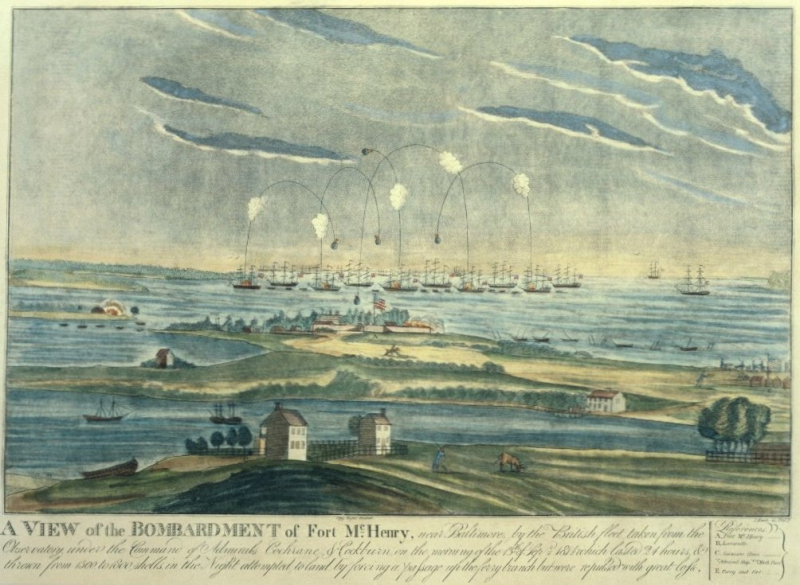All the lights were extinguished in Baltimore the night of the attack, and the fort was bombarded for 25 hours
A fight between musketry and artillery lasted for several afternoon hours during the Battle of North Point. On the following day, the British also intended to attack Baltimore by sea, but the Royal Navy was unable to weaken Fort McHenry at the entrance to Baltimore Harbor in support of an attack by the British Army from the northeast.
The British eventually came to the conclusion that they could not block the passage in order to coordinate an attack on Baltimore with their land forces. Captain Charles Napier led a last-ditch feint and barge attack along the Middle Branch of the river to the west of the fort during a torrential downpour. It turned around after incurring significant losses from the vigilant gunners of Fort Covington and Battery Babcock after becoming split and partially diverted in the storm. The British abandoned the assault and sailed downriver to reassemble their force, which had fled from Baltimore's east side. One of the facts about Baltimore in the War of 1812 cannot be ignored, on the night of the attack, Baltimore's lights were all turned off, and the fort was blasted for 25 hours. The fort's flag, which was still flying over it, was lit solely by the explosions of shells above Fort McHenry. The poem "Defence of Fort M'Henry," which American lawyer Francis Scott Key later adapted to music as "The Star-Spangled Banner," was inspired by the defense of the fort.







